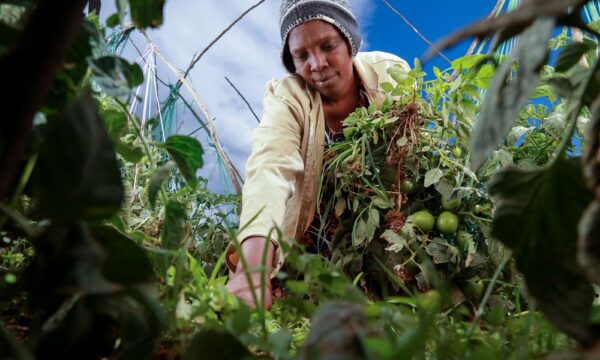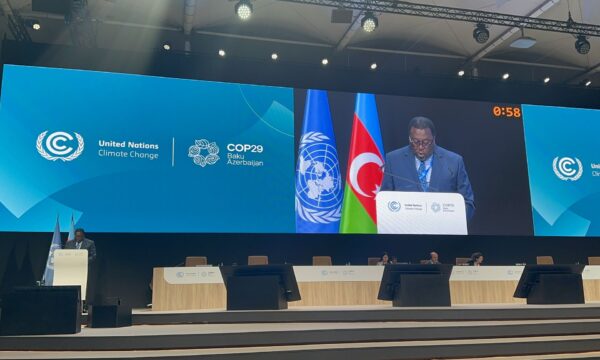Lancet Countdown has published its first annual report, monitoring how we are doing on action against climate change in relation to health. Its findings show that climate change is affecting health today and affects those in developing countries disproportionately. Twenty-five years of inaction on climate change have damaged our health, says the report, but it also found some promising signs of accelerating action in the last few years including increased research into climate effects on health, more funding directed at health and climate change and moves away from fossil fuels to renewable, cleaner energy boding well for heart and respiratory health.
The Lancet Countdown aims to help create an opportunity for health from dealing with the threat of climate change.
It intends to report annually until 2030 on 40 indicators across five thematic working groups: the health impacts of climate change; health resilience and adaptation; health co-benefits of mitigation; finance and economics associated with health and climate change; and political and broader engagement.
Here are some of the positive findings from its first report.
Indicators directly linked to health and climate change:
- Since 2007, the number of scientific papers on health and climate change has more than tripled.
- Since 2007, newspaper coverage of health and climate change has increased by 78% worldwide although the coverage was not uniform.
- Health-related climate adaptation funding by international donors is rising and is higher than ever before.
- Parts of the health care sector are moving to reduce CO2 emissions: an example is the UK’s NHS. NHS greenhouse gas emissions decreased by 11% between 2007 and 2015, despite an 18% increase in its activity.
- The amount of ruminant meat available for human consumption worldwide has decreased slightly from 12·09 kg/capita per year in 1990, to 11·23 kg/capita per year in 2013. There are big variations around the world hidden by this however. Consumption is decreasing more sharply in Europe and is increasing in other parts of the world including big increases in China. High consumption of ruminant meat has been linked to some types of cancer and heart disease and producing it has a high carbon footprint.
Some indicators set the baseline for future monitoring:
- 4·63% of the world's total climate adaptation spending ($16·46 billion) is on health and 13·3% ($47·29 billion) is on health-related adaptation.
- 30 out of 40 countries responding to the WHO Climate and Health Country Survey have a national health adaptation plan or strategy approved by the relevant national health authority.
And here are some of the negative trends:
- Climate trends have led to a global increase in the vectorial capacity for the transmission of dengue from A aegypti and Aedes albopictus, of 3·0% and 5·9%, respectively, compared with 1990 levels,
- The number of undernourished people in the 30 countries most vulnerable to climate change has increased from 398 million people in 1990 to 422 million people in 2016.
- From 2000 and 2016, the number of vulnerable people exposed to heatwave events increased by about 125 million, with a record 175 million more people exposed to heatwaves in 2015.
- Dengue mortality and melanoma mortality are rising.
Lancet Countdown is a partnership of 24 academic institutions and international organisations including WHO, with input from a wide range of disciplines. It was born out of the 2015 Lancet Commission on climate change and health that concluded “tackling climate change could be the greatest global health opportunity of the 21st century”. Launched at the last global conference on climate change, COP22, the Countdown aims to show that we can make a public health difference if we fight climate change. It aims to amass the evidence for climate actions and heighten awareness about health and climate and it is aligned with the new Sustainable Development Goals.
Related News & Blogs
Biodiversity loss: How can we reclaim our landscapes from threats to biodiversity?
On 22nd May, we mark the International Day for Biological Diversity. In this article, CABI’s Global Director for Invasive Species Dr Hariet Hinz looks at how we can reclaim our landscapes from threats to biodiversity. Biodiversity loss is proceeding at…
22 May 2025





